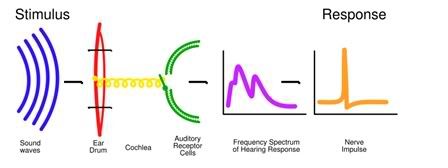
The movie itself is a both a sophisticated commentary on contemporary bio-politics (Mewtwo is a genetically engineered super-being - much like the soundtrack! - controlled by the military-industrial complex, ie. Team Rocket); and, ultimately, a celebration of the redemptive power of emotion (the collective Pokémon's tears bring Ash back to life after he weighs in on a battle between Mew and Mewtwo).
Apart from this brief mention (after which everyone has likely quit reading this post), I'll stay away from the movie itself, and instead stick to talking up the first track from this recording, Billy Crawford's heartfelt rendition of the ubiquitous Pokémon Theme.
As the song begins a wave of synths burst forth, before insistent, crisp keyboards stand to attention, underneath which forms a heroic reappropriation of action-movie guitar wang (the kind often heard behind shots of helicopters over cityscapes), itself then segueing almost immediately into a rapid, 300bpm drum roll which announces the youthful, endlessly versatile and buttery voice of Billy, who, channelling all the poké-catching passion of protagonist Ash, sings "I wanna be the very best / Like no one ev-a was / To catch them is my real test / To train them is my cause". Each line is interspersed by some unbelievably metallic synths, pulsating behind the rhythmic, heartfelt vocals of Billy - just try not being swept away by that accenting of 'ever' in the second line.
And all this in only the first twenty seconds! Mums and Dads are sitting in their loungerooms, with this blared by their schizophrenic ten-year-old, and they're happy - why? Not only because of Billy's effervescent, heart-stopping vocalising, but because they know that little Jimmy will be positively fucked by the time this song has worked itself over him, and Mum and Dad will be able to enjoy the ensuing delights of the rest of the soundtrack alone. You could eat a whole tub of Sara Lee Triple Chocolate Chip and after one subjection to Pokémon Theme you will have worked off every single calorie from it. Sun0)))'s effect might by physical, but damn, this song is physiological!
Back to the track - by the time Billy reaches the ecstatic chorus ("Pokémon! / It's you and me! / I know it's my desta-neee! ...") a veritable church choir has joined in on backing vocals, punctuating all the most important lyrics ("Power inside", "Pokémon!") and adding an almost evangelical quality to the proceedings, along with the rising star synths, cathedral bells and that incessant beat.
Further sonic bombshells await, however, as what might be the fiftieth musical element joins in at the 1:10 mark for a 'blink and you'll miss it' YACHT-style 8-bit organ jam, until that's curtailed by those cheeky 300bpm drums and Billy's now grinding, soulful vocals which seem to reach the pits of your soul, or waters, depending on your preference.
But the best soloing work is saved for after the second chorus, as an actual musician, the illustrious Jeff Golub joins in around 2:18 for a guitar solo that is best described by borrowing from the man himself's website: "a little groovy, a little sexy, and a whole lot of cool!" This dude's steez wafts over the entire song, arguably it's best moment (in close competition with Billy's harmonies!), as he coaxes a clean and fast funk from his axe, before stretching the guitar to its limits up the neck to bring in the final, triumphant chorus, itself rumbling to a finish when all instruments suck back to let the choir and Billy soar one last time as they bellow the final line: "Pokémon!"
The rest of the soundtrack takes off from this absolute gem, with M2M's timeless paean to romantic procrastination, Don't Say You Love Me; some affirmative balladry from Xtina (We're A Miracle), positively dripping with pathos - "no one knew that all the tears in heaven / would bring me back to you" (a poignant reference to Ash and Pikachu's fraternity); Britney Spears getting her groove-thang on with Soda Pop (winning candidate for upbeat credits-roll music); the bubbly, super effusive Get Happy courtesy of those crazy wiccans B*Witched (who could forget their appearance at Westfield in 1997?); the postmodern posturising of Angela Via's Catch Me If You Can (directly appropriating Nintendo sounds); and many more.
Movie soundtracks are so often a cynical exercise in vertically integrated entertainment industry hegemony; even more so when it comes to children's films and the plethora of merchandising that explodes around them. What a refreshing reminder is the Music From and Inspired By The Motion Picture - Pokémon: The First Movie that movies and their soundtracking must not always meet under the sphere of crap. This recording defiantly advocates an alternative position, unafraid to take some Golub gambles and assemble itself from some of the most exciting, and truly alternative music, that was in circulation at the fin de millenium.
For those left wondering, Billy achieved double-platinum status with this theme song. Unfortunately, things haven't been going so well for this ultra-babe since. Soon after, he fell into a river and his last album, 2004's Big City, was only released in France and Asia, the first single didn't break any Top Ten charts, and the anticipated third single was cancelled by his label. But the boy is savvy, and after deciding not to re-sign with the ingrates who denied his third single, he's gone on to write and produce songs for other artists, amongst them Britney Spears. And with that, Billy took his and Britney's conjoined past's (working on this very special soundtrack), and folded them into everyone's present.
Billy Crawford - Pokémon Theme (from Pokémon: The First Movie official soundtrack)



